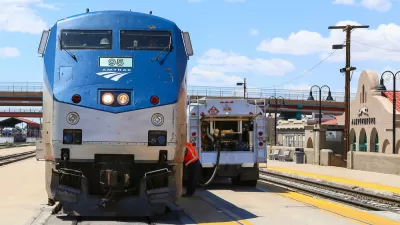Fracking bans passed overwhelmingly in the Front Range cities of Boulder, Fort Collins and Lafayette but appeared to be losing by a mere 248 votes in Broomfield as of 11 p.m. on election night.
Alison Noon provides election updates from The Denver Post as of 11 p.m. on Nov. 5. Voters in Boulder extended the city's existing fracking moratorium for five years by approving Boulder Ballot Question 2H: Oil and gas with 77 percent of the vote. Lafayette Ballot Question No. 300: Gas and oil, an outright ban on fracking, passed with 58 percent. Fort Collins Ballot Issue 2A, a five-year moratorium, won with 55 percent of the vote.
The passage of the three ballot measures is particularly significant when one looks at how little money the proponents spent compared to the opposition.
Colorado Oil and Gas Association opened its wallet wide to oppose all of the anti-fracking measures, spending $878,120 on city-specific campaigns by Halloween. Anti-fracking groups raised just over $26,000 in the same time.
While it was not yet known whether the energy industry would litigate the issue as they did with the Longmont ban, "Gov. John Hickenlooper says he won’t tolerate cities and towns that ban oil and gas drilling within their borders and he promises to take them to court," according to a CBS4 report on Feb. 26.
David J. Unger of the Christian Science Monitor writes that the ballot measures are a sign of the greater debate in Colorado and throughout the country about the drilling process known as fracking. It "is highly symbolic, and it comes just months after massive floods spilled tens of thousands of gallons of oil and gas condensate in northwest Colorado. What happens in Colorado may serve as a litmus test for the oil and gas industry, as fracking continues to spread across the U.S."
FULL STORY: Sides square off over $900,000 spent on Colorado anti-fracking measures

Study: Maui’s Plan to Convert Vacation Rentals to Long-Term Housing Could Cause Nearly $1 Billion Economic Loss
The plan would reduce visitor accommodation by 25,% resulting in 1,900 jobs lost.

Alabama: Trump Terminates Settlements for Black Communities Harmed By Raw Sewage
Trump deemed the landmark civil rights agreement “illegal DEI and environmental justice policy.”

Why Should We Subsidize Public Transportation?
Many public transit agencies face financial stress due to rising costs, declining fare revenue, and declining subsidies. Transit advocates must provide a strong business case for increasing public transit funding.

Paris Bike Boom Leads to Steep Drop in Air Pollution
The French city’s air quality has improved dramatically in the past 20 years, coinciding with a growth in cycling.

Why Housing Costs More to Build in California Than in Texas
Hard costs like labor and materials combined with ‘soft’ costs such as permitting make building in the San Francisco Bay Area almost three times as costly as in Texas cities.

San Diego County Sees a Rise in Urban Coyotes
San Diego County experiences a rise in urban coyotes, as sightings become prevalent throughout its urban neighbourhoods and surrounding areas.
Urban Design for Planners 1: Software Tools
This six-course series explores essential urban design concepts using open source software and equips planners with the tools they need to participate fully in the urban design process.
Planning for Universal Design
Learn the tools for implementing Universal Design in planning regulations.
Smith Gee Studio
Alamo Area Metropolitan Planning Organization
City of Santa Clarita
Institute for Housing and Urban Development Studies (IHS)
City of Grandview
Harvard GSD Executive Education
Toledo-Lucas County Plan Commissions
Salt Lake City
NYU Wagner Graduate School of Public Service



























